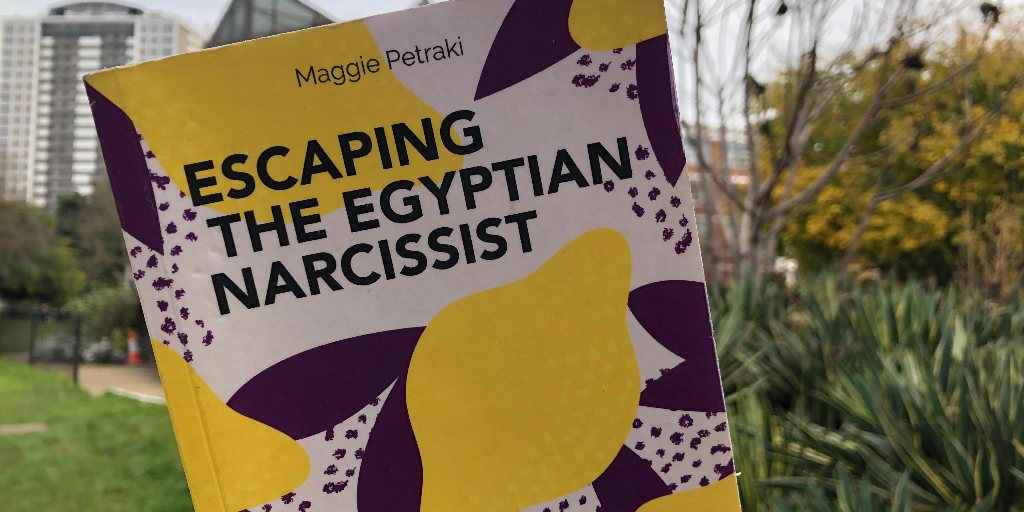During the pandemic, catapulted by a general ennui and reminders that I was somehow thrown into further isolation through a lack of using social media, I finally downloaded Instagram. A few weeks in, I started noticing posts by a specific account in which narcissism, in an Egyptian context, was the focus point. Intrigued, I opened the page to find little quotes from a book, by Maggie Petraki, called “Escaping the Egyptian Narcissist. ” Somehow, the book’s coming into my awareness was concomitant with the existence of narcissism in my life, as I reflect over past failed relationships. It seemed easy to find signs of narcissism everywhere – from my male cousins to former partners – in the exact same way it seemed easy to pass them off as natural human flaws. I never reached a conclusion on what could be narcissism, as it seemed too incredible, unbelievable, and well beyond my grasp; my entire life, I was raised to believe individuals were the way they were due to their pasts and upbringing, ergo, excusing much of their questionable behaviors. Seeking further clarification, I sought Petraki’s book which she generously sent…



